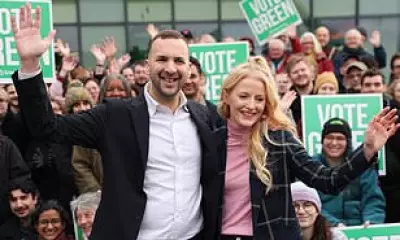
The Conservative Party is facing open warfare over its immigration policies as senior Tory figures engage in a bitter public clash. Former deputy prime minister Michael Heseltine has launched a devastating critique of the government's approach, warning that the party has "completely failed" to meet its immigration promises.
Heseltine's Stinging Rebuke
Lord Heseltine, a veteran of Conservative governments spanning decades, didn't mince words when assessing his party's performance. "We said we'd get the numbers down, we've completely failed," he stated bluntly. The senior Tory peer expressed particular concern about the impact on public services, highlighting the strain caused by current immigration levels.
His comments represent a significant intervention from within the Conservative establishment, coming at a critical time when the party trails Labour in opinion polls ahead of the upcoming general election.
Internal Divisions Widen
The public criticism exposes deepening rifts within Conservative ranks. Business Secretary Kemi Badenoch finds herself at the centre of the storm, facing accusations of pursuing immigration policies that contradict the government's stated objectives.
Meanwhile, former immigration minister Robert Jenrick has emerged as a vocal critic from the right flank of the party. His resignation from government last year signalled the growing discontent among Conservative MPs regarding the leadership's handling of migration issues.
Election Implications
This internal conflict couldn't come at a worse time for Rishi Sunak's government. With the general election looming, the public airing of grievances threatens to undermine the party's credibility on one of the key issues that defined the Brexit debate.
The Conservative manifesto pledge to reduce net migration has become a focal point of criticism, with current numbers remaining significantly higher than promised. This failure has provided ample ammunition for both internal critics and opposition parties.
A Party at War With Itself
The public nature of these disagreements suggests a party struggling to find consensus on one of the most contentious issues in British politics. As different factions push competing visions for immigration policy, the Conservative leadership faces the challenging task of maintaining unity while addressing legitimate concerns about border control and integration.
With the election campaign intensifying, these internal divisions could prove costly for a party seeking to extend its fourteen-year tenure in government.






